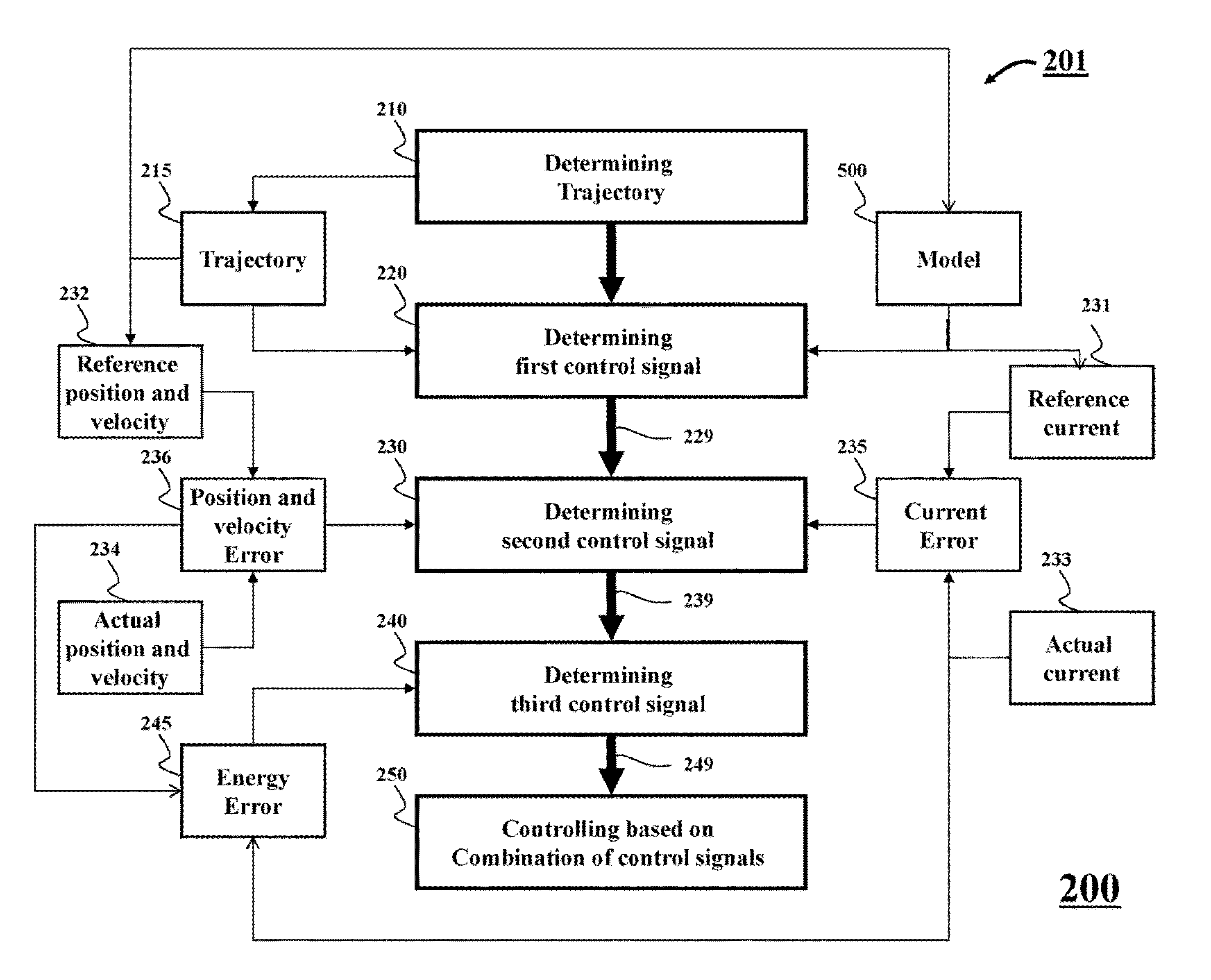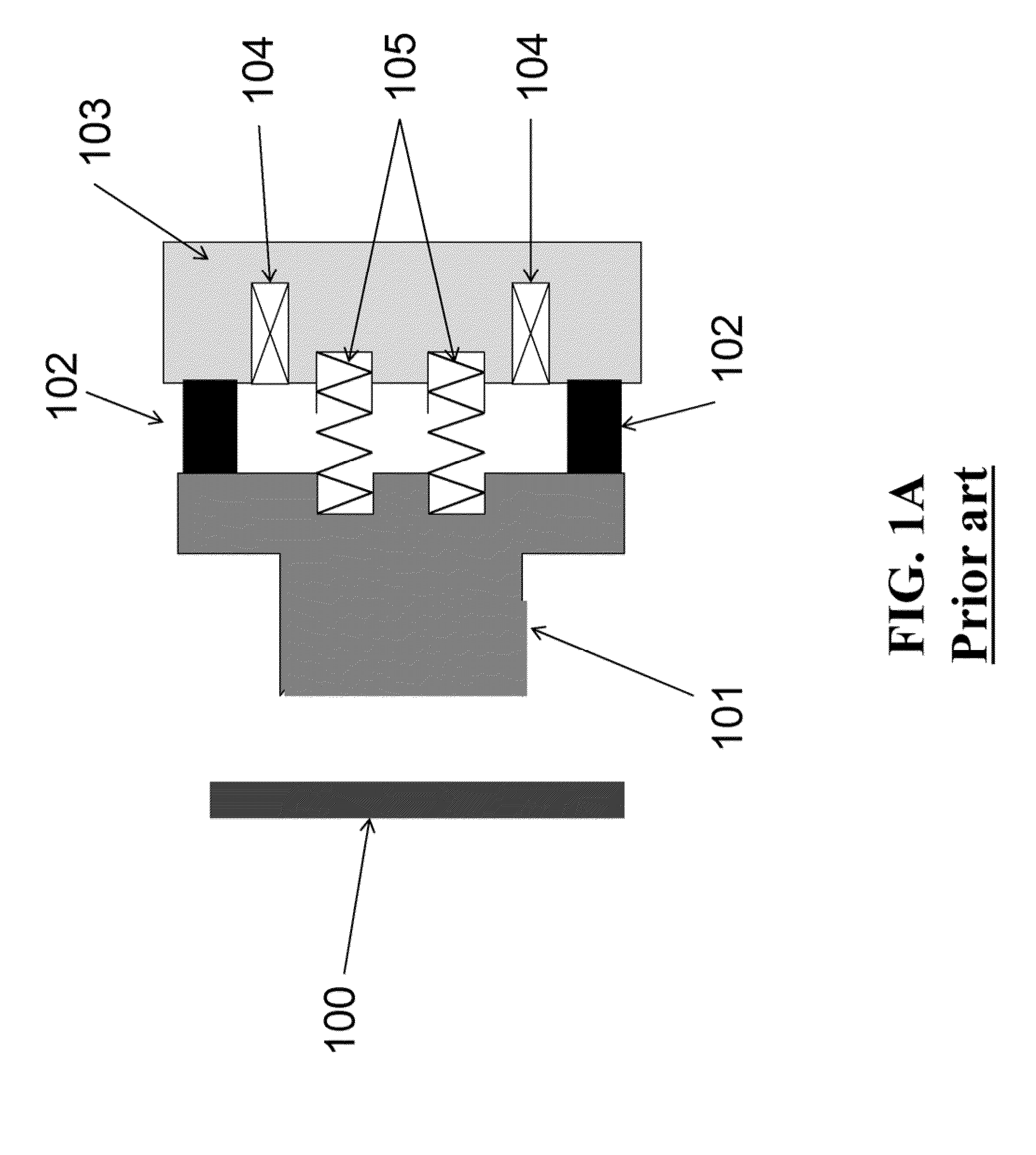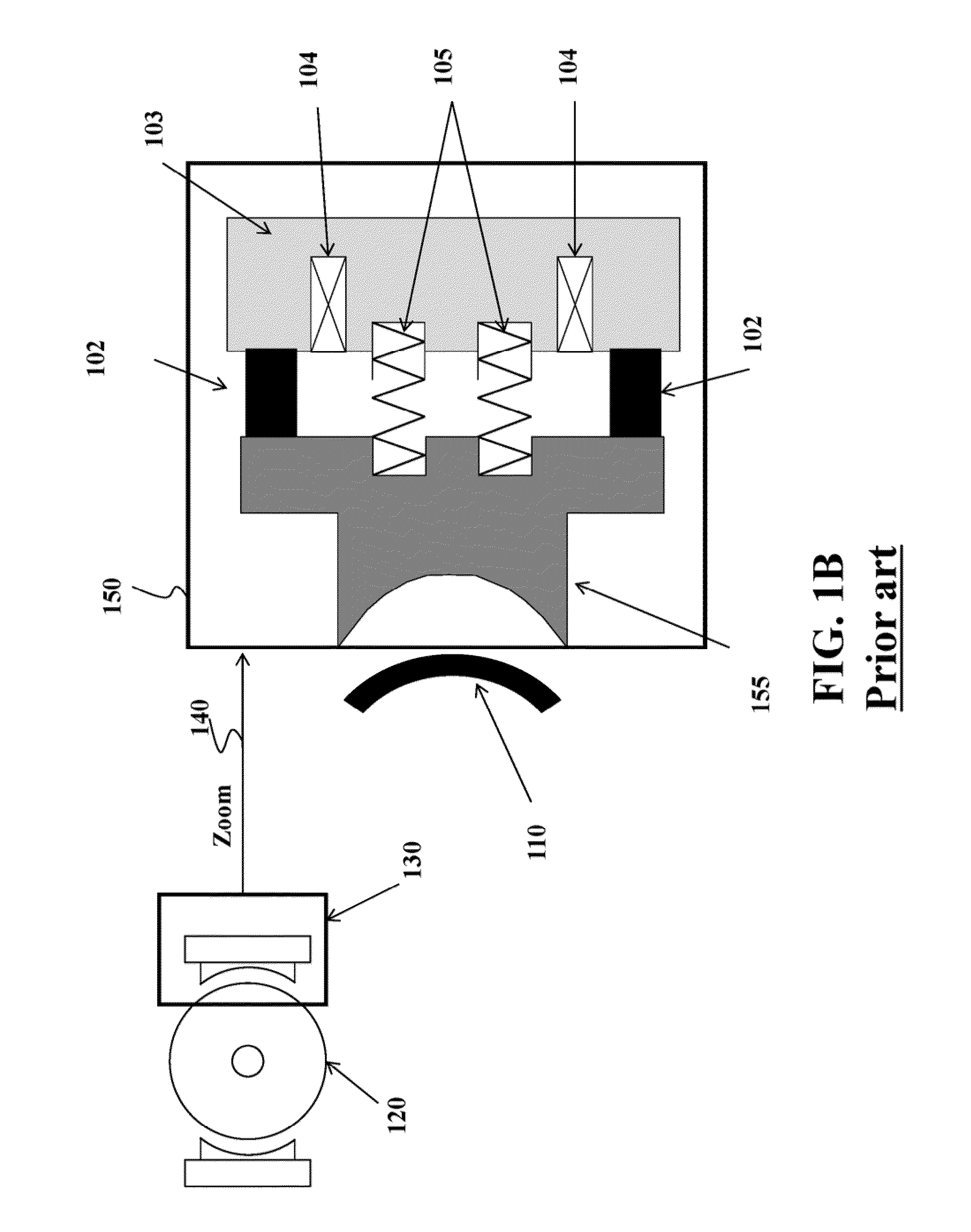Model-Based Learning Control
a learning control and model technology, applied in adaptive control, elevators, instruments, etc., to achieve the effect of reducing the noise generated by the break system and minimizing the cost of installation and maintenance of the brake system
- Summary
- Abstract
- Description
- Claims
- Application Information
AI Technical Summary
Benefits of technology
Problems solved by technology
Method used
Image
Examples
Embodiment Construction
[0024]FIG. 2 shows a block diagram of a method 200 for controlling an operation of an actuator according to some embodiments of an invention. The actuator can be suitable for usage in a break system of an elevator. However, the embodiments can control a moving element (ME) of various types of the actuators, e.g., electromagnetic actuators. Embodiments of the invention can be implemented using a processor 201.
[0025]The method 200 determines 210 a trajectory 215 of a position of the ME as a function of time and determines 220 a first control signal 229 based on a model of the actuator, e.g., a model 500, and the trajectory 215. The first control signal is determined to change a position of the ME according to the trajectory.
[0026]A second control signal 239 is determined 230 to compensate for a first component of an error of the operation due to an uncertainty of a model of the actuator system. For example, the second signal can be determined based on a position and velocity error 236...
PUM
 Login to View More
Login to View More Abstract
Description
Claims
Application Information
 Login to View More
Login to View More - R&D
- Intellectual Property
- Life Sciences
- Materials
- Tech Scout
- Unparalleled Data Quality
- Higher Quality Content
- 60% Fewer Hallucinations
Browse by: Latest US Patents, China's latest patents, Technical Efficacy Thesaurus, Application Domain, Technology Topic, Popular Technical Reports.
© 2025 PatSnap. All rights reserved.Legal|Privacy policy|Modern Slavery Act Transparency Statement|Sitemap|About US| Contact US: help@patsnap.com



